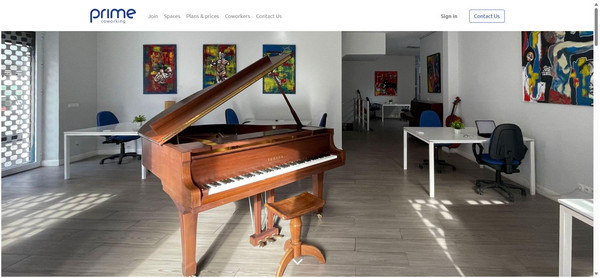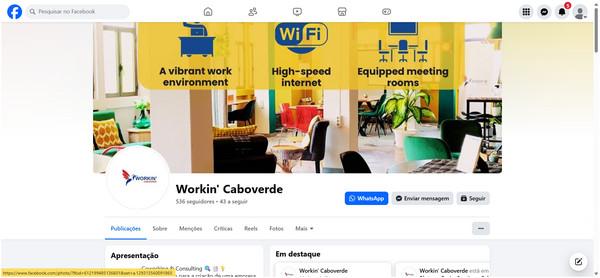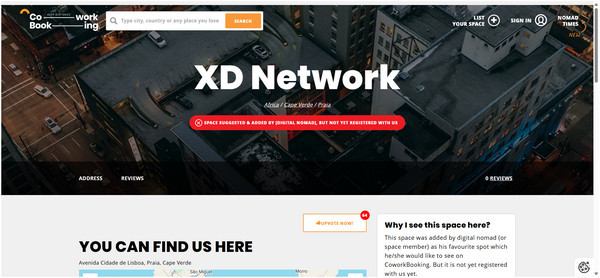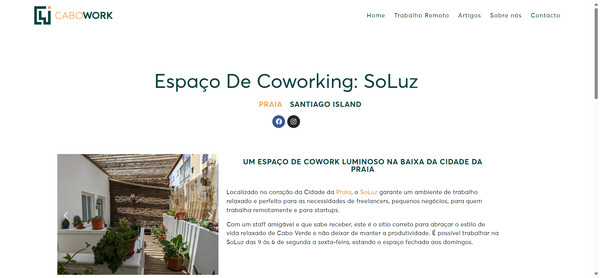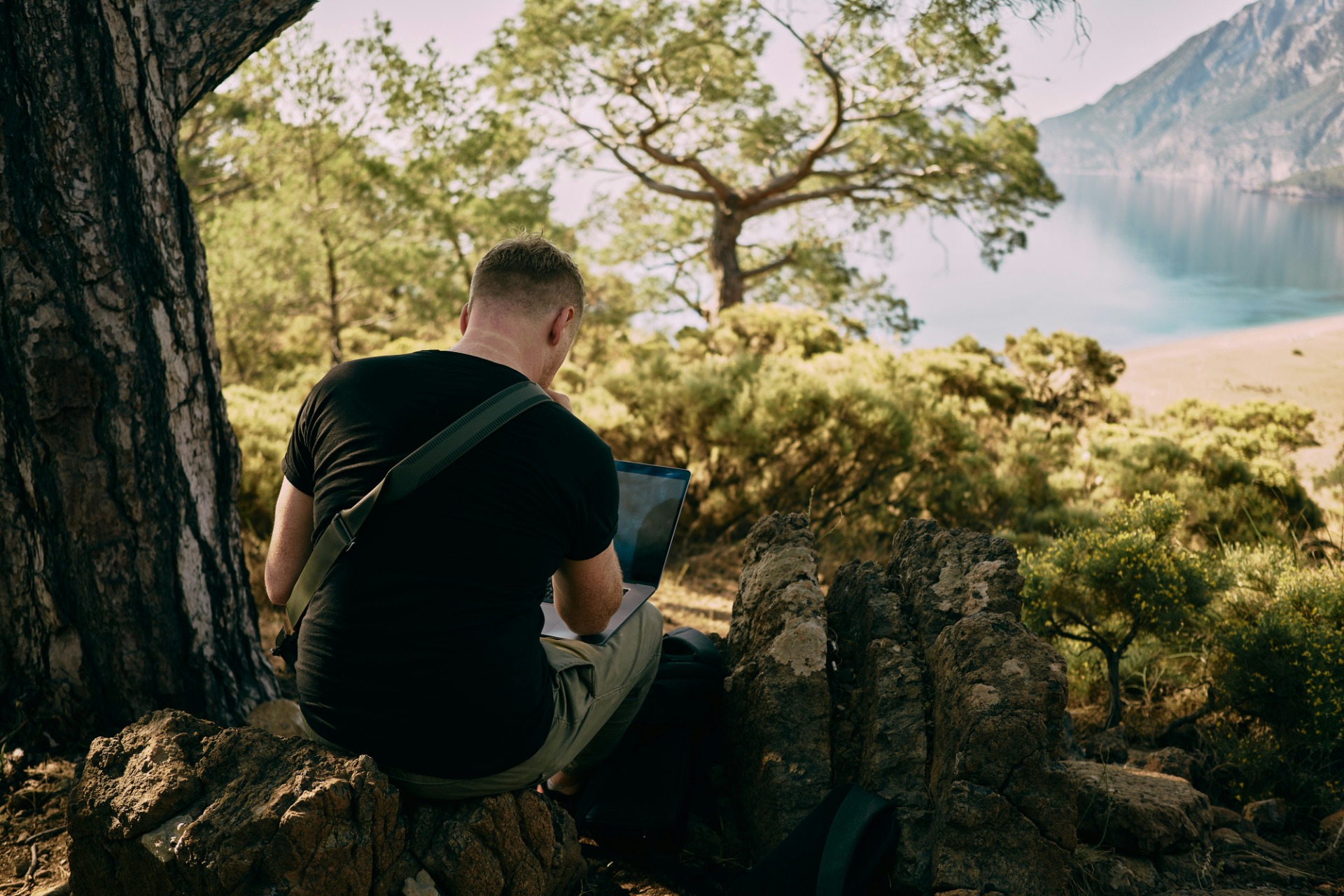
Cape Verde:for Digital Nomads
Cape Verde: for Digital Nomads – Official Programs and Benefits at a Glance
Imagine: Azure blue seas, volcanic landscapes, and a vibrant culture just a flight away – all while you work remotely. Cape Verde, the African archipelago, offers exactly that. Yet despite its appeal, many digital nomads remain unaware of the official government initiatives that position the country as a hotspot for remote workers. In this article, we take a clear look at established visa options, tax incentives, and digital infrastructures. Based on official documents from the Cape Verdean government, we reveal why Cape Verde could be your next home – fact-based and inviting.
The Remote Working Visa: Easy Entry into a Year of Island Life
The Cape Verdean government has created the Remote Working Program (also known as Distant Working Cabo Verde) as a special temporary work/tourist visa since 2020, targeting digital nomads. This visa allows a stay of six months, renewable for another six – ideal for a full year of adventure. It is aimed at freelancers and remote workers who operate via the internet without needing a local office. Requirements are straightforward: A passport valid for at least six months, proof of a minimum monthly income of €1,500 (or €2,700 for families), and an online pre-application via the official platform ease.gov.cv.
The application can be done online or on-site at the border, with a fee of just €20 per person plus a one-time airport fee of €34. Family members are welcome, and the program is accessible to citizens from the EU, USA, Canada, CPLP countries (e.g., Portugal), and CEDEAO states.
Complementing this, the general Residence Visa for professional activities offers an alternative: It grants six months of stay, extendable, and requires proofs such as accommodation, health certificate, and subsistence means – perfect for declaring a commercial remote activity as a "professional activity." This makes entry bureaucratically lean and efficient.
Tax Benefits: Working Without Tax Burdens
A highlight for nomads: Under the Remote Working Program, income from remote work is tax-free – a direct government initiative to attract foreign talent. This includes income tax, as long as the earnings do not stem from Cape Verdean sources. This is supplemented by simplified company formation: The government promotes investments in the digital economy with reduced registration fees and fast approval processes via the One-Stop-Shop system of the Ministry of Economy and Employment. Government reports highlight how these measures boost appeal for freelancers without complicated levies.
Digital Infrastructure and Hubs
Cape Verde's Cabo Verde Digital program, launched in 2019, is transforming the country into a "Digital Nation." It includes nationwide high-speed internet coverage with 4G/5G networks at competitive prices and the establishment of digital hubs in cities like Praia and Mindelo. These spaces offer co-working options, coding schools, and innovation centers, funded through the Digital Economy Strategy (EEDCV) of the Ministry of Economic Development. Nomads benefit from stable connectivity – essential for video calls – and time zone advantages close to European markets. The World Bank praises these investments as a key for attracting nomads.
Investment Incentives: From Idea to Startup
For ambitious nomads, official programs like the Investment Code facilitate the founding of tech startups. Tax relief for foreign investors in digital sectors (e.g., software development) and grants for hubs make Cape Verde a launchpad. The government explicitly targets 4,000 nomads by 2024 – a goal made tangible through these frameworks.
Cape Verde is more than a vacation: It's a smart choice for sustainable nomad life. With these official offerings – from the tax-free visa to modern hubs – the islands invite you to blend productivity and relaxation. Visit portalconsular.mnec.gov.cv or visit-caboverde.com to get started. Your paradise awaits – pack your laptop!
Co-Working Spaces in Cabo Verde: A Growing Hub for Digital Nomads
Cabo Verde (Cape Verde) is rapidly emerging as a digital nomad destination, thanks to its stunning volcanic islands, year-round sunshine, and government-backed digital infrastructure like the "Cabo Verde Digital" initiative. This program, launched in 2019, includes the development of technology parks and hubs in key cities such as Praia and Mindelo, which often incorporate co-working facilities to support remote workers, startups, and innovators. While internet can be spotty in rural areas (opt for a local SIM for reliability), urban spots boast 4G/5G coverage suitable for video calls. Co-working spaces here blend productivity with island vibes—think high-speed Wi-Fi, ergonomic setups, and easy access to beaches or cultural scenes.
Based on recent reports and directories (as of mid-2025), options are concentrated on Sal, Santiago (Praia), and São Vicente (Mindelo), with more popping up due to the Remote Working Visa program. Prices are affordable (often €5–15/day), and many cater to nomads with community events. Here's a fluent overview of the standout spaces, organized by island for easy navigation.
On Sal (especially Santa Maria), you'll find some of the most vibrant and newcomer-friendly spots. GoHub, the newest addition (opened around 2024), stands out as Cabo Verde's largest and most accommodating space—offering high-speed internet perfect for meetings on tools like Webex or Teams, air-conditioned private desks for €50–100/month, meeting rooms, and a chill vibe overall. It's centrally located in Santa Maria and easy to book via gohub.world. Nearby, Work Sal provides hot desks and community events, making it ideal for short stays and networking with fellow nomads, just steps from kitesurfing beaches—check Coworker.com for availability. For a more laid-back, eco-friendly twist, Coworksurf combines coliving with co-working in a hybrid setup featuring 16 Mbps Wi-Fi, a shared kitchen, lounge areas, and even communal dinners or board games; it's a quick two-minute walk to the beach and surf spots in Santa Maria, bookable at coworksurf.com. Over on Boa Vista, GoHub's sister location in Sal Rei offers fixed or hot desks with weekly passes and a strong community focus, emerging as a great pick for off-grid nomads seeking team collaboration.
Shifting to Santiago (Praia), the capital's scene is polished and professional, anchored by Prime Coworking (also known as CoWorking by Prime), which has earned awards as the best in Cabo Verde. With multiple spots in Palmarejo and the historic center, it delivers hot and dedicated desks, meeting rooms, event spaces, fast Wi-Fi, plant-filled fresh-air zones, and even musical instruments for downtime breaks—day rates run €10–20, and it partners directly with the Remote Working Program; head to coworking.prime.cv for details.
NOSi Akademia, tied to the government through the Núcleo Operacional da Sociedade de Informação, emphasizes tech training and incubation with co-working access to digital tools—it's part of the newly inaugurated TechPark CV (May 2025), positioning Praia as a regional ICT hub.
For a modern, daily-grind vibe, Cowork Praia in the central area suits remote pros with reliable setups and nomad meetups, plus vibrant nightlife nearby—find it through CoworkingSafari or local directories.
On São Vicente (Mindelo), the cultural heart of the islands shines through in spaces like Prime Coworking Mindelo, a sister site to Praia's with a historic center location, networking events such as Prime Talks, and shared access across islands—it's especially appealing to creatives soaking up the nearby morna music scene, again at coworking.prime.cv.
The Mindelo Business Center doubles as a cultural hub supporting startups, complete with high-speed access and collaborative energy for artists and techies alike—connect locally via CaboWork.
Beyond these, government-backed digital hubs like the Cabo Verde Technology Park (TechPark CV)—funded by the African Development Bank and opened in May 2025—provide structured co-working in Praia and Mindelo, including incubation centers, data storage, training labs, and innovation areas to establish the country as West Africa's "digital hub." The Special Economic Zone for Technology (ZEET) adds tax perks for tech firms using these facilities. Recent social media buzz underscores expansions in youth-focused innovation hubs.
Tips for Nomads
- Booking: Platforms like Coworker.com or CaboWork.com offer real-time availability and reviews. Many tie into the Remote Working Program for seamless stays.
- Community: Dive into events through Cabo Verde Digital or local Facebook groups—nomad numbers are surging past the government's 4,000 target from 2024.
- Challenges: Power outages can occur, so prioritize spaces with backups. For impromptu beach sessions, Angulo Cabo Verde bar on Sal works well.
If you're eyeing a specific island, I can refine this further!
Your Title
This is where your text starts. You can click here and start typing. Sed ut perspiciatis unde omnis iste natus error sit voluptatem accusantium doloremque laudantium totam rem aperiam eaque ipsa quae ab illo inventore veritatis et quasi architecto beatae vitae dicta sunt explicabo nemo enim ipsam voluptatem.


